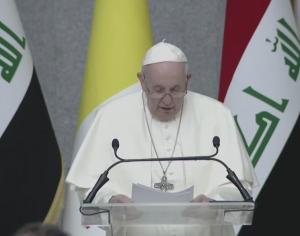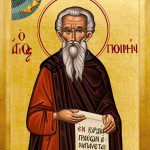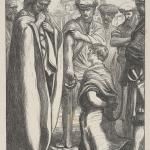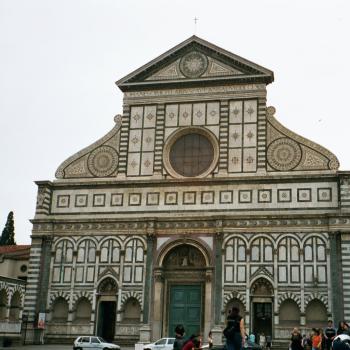
Pope Francis has been warning Catholics (and all Christians) against the dangers of ideologies, how they precondition us to think in patterns which run contrary to the teaching and praxis of the Gospel. Ideologies are rigid. They try to condition everything to closed systems which have no room for grace, no room for mercy, no room for freedom, and no room for love. They might speak of grace, mercy, freedom and love, but they do so to limit them, and so, when embraced, ideologies corrupt and defile the church. When they become powerful, when they influence too many within the church, especially those in positions of leadership, we need them to be dismantled so that Christians can once again be led by the Spirit to follow the Gospel in its fullest. This, then, is what Pope Francis wished for in his prayer intentions for August: “Let us begin reforming the Church with a reform of ourselves, without prefabricated ideas, without ideological prejudices, without rigidity, but rather by moving forward based on spiritual experience —an experience of prayer, an experience of charity, an experience of service.”[1] It is also what he preached about at Pentecost; ideologies limit us and keep us away from the whole of the Gospel; following them prevents the church from being holistic and embracing the whole of its mission, a mission which no one systematic presentation of thought, no ideology, can in and of itself present:
Today, if we listen to the Spirit, we will not be concerned with conservatives and progressives, traditionalists and innovators, right and left. When those become our criteria, then the Church has forgotten the Spirit. The Paraclete impels us to unity, to concord, to the harmony of diversity. He makes us see ourselves as parts of the same body, brothers and sisters of one another. Let us look to the whole! The enemy wants diversity to become opposition and so he makes them become ideologies. Say no to ideologies, yes to the whole.[2]
Sadly, in the United States, it is clear that a wealthy ideological base is trying to transform the Christian faith so that the faith will be in its own image instead of following the fullness of the Gospel and all its teachings. This ideology ignores the basic praxis of the church, the social doctrine of the church and its preferential option for the poor and vulnerable, as the ideology promotes the wealthy and their own interests over and above the poor and needy. It is using its wealth to transform Catholic educational institutions so that they will teach according to its guidelines, according to its limited and distorted vision of the faith. By doing so, by making itself so central to what is being discussed in the United States, this ideology is causing great pain and sorrows to countless Catholics as their needs, both spiritual and physical, are not being met because they are not considered important. This is exactly what we see happening with the Napa Institute, its allies, and their influence over all kinds of Catholic dioceses and educational institutions. The University of Notre Dame, once considered one of the greatest Catholic educational institutions, is now being taken under their grip, as they are now using Notre Dame to influence the next generation of seminarians, as John Gehring writes in the National Catholic Reporter:
The Napa Institute, a conservative Catholic organization known for its annual high-end conference featuring wine tastings and cigars, announced plans to expand its work to include programs on “priestly formation” and a lecture series at the University of Notre Dame, with the latter’s first scheduled speaker to be U.S. Supreme Court Justice Clarence Thomas.[3]
Timothy Busch, one of the co-founders of the Napa Institute, fights hard against Catholic social teaching, which can be seen in the way he suggests Catholicism stands against labor unions:
As Timothy Busch sees it, Catholicism takes a dim view of labor unions and raising the minimum wage, is in favor of “right to work” laws, and absolutely rejects political leaders who fail to be strictly anti-abortion. “Capitalism and Catholicism,” he has said, “can work hand in hand.” In 2017, he greeted the inauguration of President Trump by declaring that a “time of light” was now at hand, which he contrasted with “a time of darkness,” by which he apparently meant the Obama presidency.[4]
Labor unions, far from being viewed with suspicion, are promoted by Catholic teaching:
All these rights, together with the need for the workers themselves to secure them, give rise to yet another right: the right of association, that is to form associations for the purpose of defending the vital interests of those employed in the various professions. These associations are called labour or trade unions. The vital interests of the workers are to a certain extent common for all of them; at the same time however each type of work, each profession, has its own specific character which should find a particular reflection in these organizations. [5]
Pope Benedict XVI warned of the way labor unions were being hindered by governments, which of course, comes from the influence of the rich and powerful and the ideologies they use to control and manipulate governments:
Through the combination of social and economic change, trade union organizations experience greater difficulty in carrying out their task of representing the interests of workers, partly because Governments, for reasons of economic utility, often limit the freedom or the negotiating capacity of labour unions. Hence traditional networks of solidarity have more and more obstacles to overcome. The repeated calls issued within the Church’s social doctrine, beginning with Rerum Novarum, for the promotion of workers’ associations that can defend their rights must therefore be honoured today even more than in the past, as a prompt and far-sighted response to the urgent need for new forms of cooperation at the international level, as well as the local level.[6]
Pope St. John Paul II pointed out that trade unions, and their work to help the people in them, are the modern day successors of medieval trade guilds, which demonstrate the necessary role they play in society:
In a sense, unions go back to the mediaeval guilds of artisans, insofar as those organizations brought together people belonging to the same craft and thus on the basis of their work. However, unions differ from the guilds on this essential point: the modern unions grew up from the struggle of the workers-workers in general but especially the industrial workers-to protect their just rights vis-a-vis the entrepreneurs and the owners of the means of production. Their task is to defend the existential interests of workers in all sectors in which their rights are concerned. The experience of history teaches that organizations of this type are an indispensable element of social life, especially in modern industrialized societies. Obviously, this does not mean that only industrial workers can set up associations of this type. Representatives of every profession can use them to ensure their own rights. Thus there are unions of agricultural workers and of white-collar workers; there are also employers’ associations. All, as has been said above, are further divided into groups or subgroups according to particular professional specializations. [7]
The preferential option for the poor, and the need for the poor to work together to fight against the powers which would strip them of their integral value, is under attack by Busch and the Napa Institute. They are for the wealthy. Their programs are for those who are rich. The poor are left behind. This is not the only dangerous aspect of the Napa Institute and its ideological foundations, but it shows how it and its leaders misrepresent Catholic teaching for the promotion of a dangerous and false ideology. This is also why they should not be given the power to train future generations of priests, for they are training seminarians to stand against Catholic teachings.
It is no surprise that those associated with the Napa Institute are promoting other right-wing agenda and ideologues, such as the way Bishop Barron argues in favor of the teachings of Jordan Peterson. How can anyone claim Jordan Peterson is “The person most responsible for reintroducing God and the Bible into mainstream secular culture today”? Jordan Peterson, an atheist, a staunch opponent of Catholic social teaching who has told Catholics to go on strike from mass, is not the person most responsible for spreading the Gospel, but rather, limiting it and turning many people away from it (either through a corrupted version of it which they take on, or having people believe him and so have nothing to do with the faith).
Pope Francis understands the church is in crisis. He understands the influence of various ideological entities around the world and how they are harming the faithful. It is easy to see this happening in the United States. The Napa Institute represents one such important example of this problem; it is taking over the Christian narrative in the United States. The crisis is real. But this also means the church is also living. The struggle against ideologies and the dangers they present shows the Spirit is working, and the church will not stay down. “Let us remember that the Church always has difficulties, always is in crisis, because she’s alive. Living things go through crises. Only the dead don’t have crises.” [8] We must not let the Napa Institute, and its ideological allies striking against the teachings of the church (and Pope Francis himself) win. We must resist. We must make it clear that its conferences are not acceptable, that our future priests should not be influenced by its poison.
[1] Pope Francis, Video of the Holy Father with the Prayer Intention for the Month of August, Disseminated via the Pope’s Worldwide Prayer Network (8-3-2021).
[2] Pope Francis, Homily for Pentecost. Vatican translation (5-23-2021).
[3] John Gehring, “Napa Institute Expands to Fight the Culture War,” in National Catholic Reporter (8-4-2021).
[4] Katherine Stewart, “How Big Money Is Dividing American Catholicism,” in New Republic (3-9-2021).
[5] Pope St. John Paul II, Laborem Exercens. Vatican translation. ¶20.
[6] Pope Benedict XVI, Caritas in veritate. Vatican translation. ¶25
[7] Pope St. John Paul II, Laborem Exercens, ¶20.
[8] Pope Francis, Video of the Holy Father with the Prayer Intention for the Month of August, Disseminated via the Pope’s Worldwide Prayer Network (8-3-2021).
Stay in touch! Like A Little Bit of Nothing on Facebook.
If you liked what you read, please consider sharing it with your friends and family!













